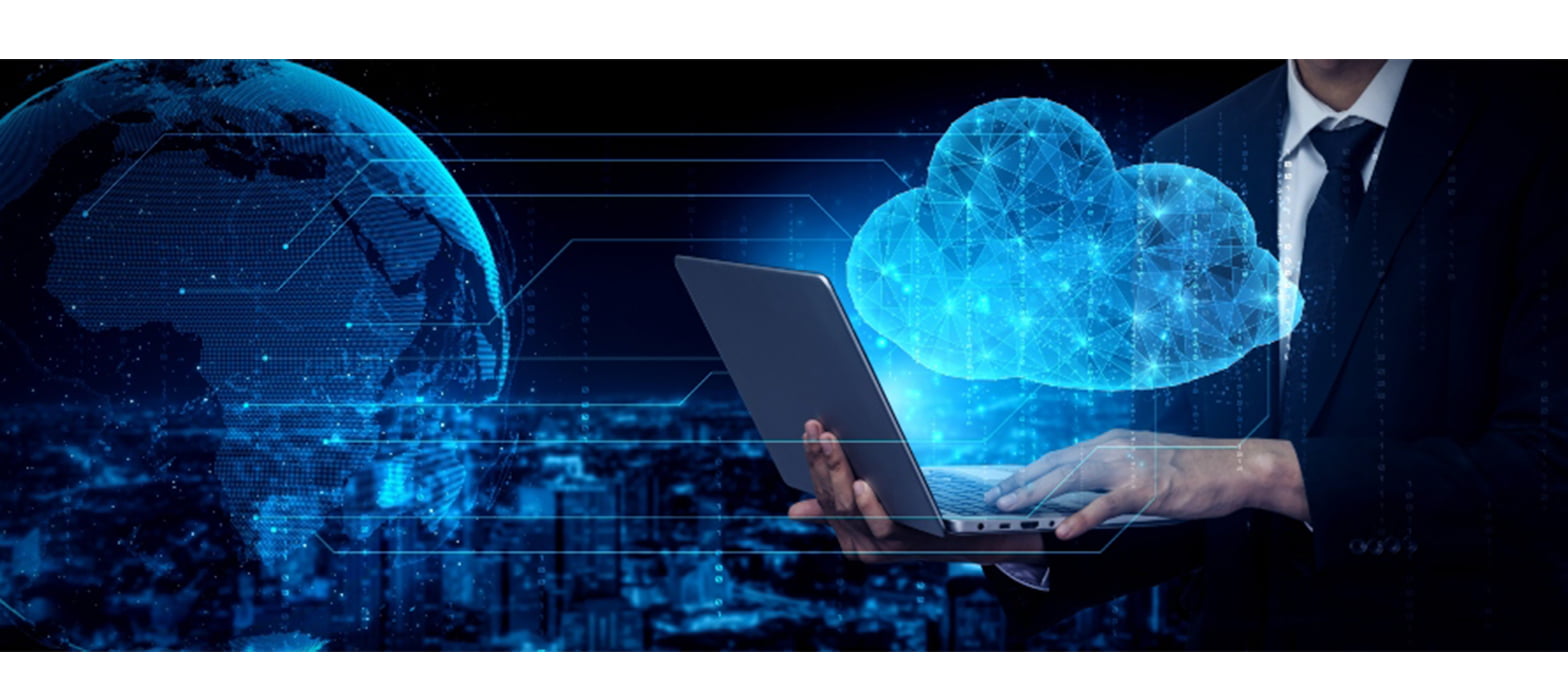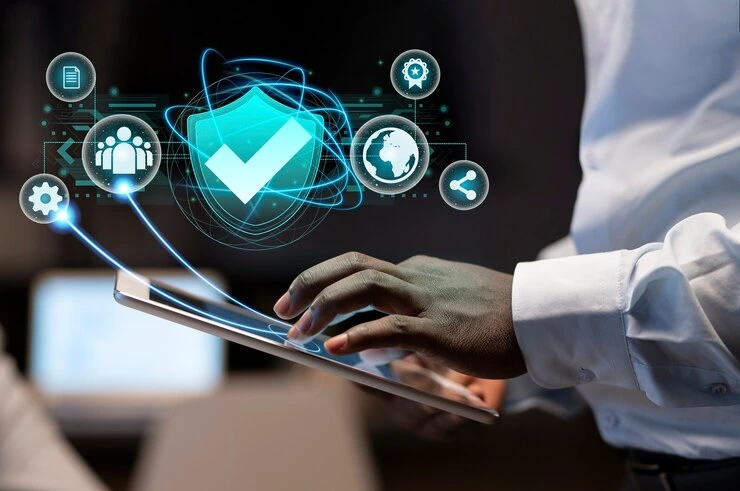Table of Contents
In today’s fast-paced HR environment, the need to improve efficiency and innovation has resulted in a revolutionary transformation that is the integration of AI agents. AI is quickly changing the way HRs manage their operations and is expected to impact every aspect of HR operations. Just imagine a workplace where administrative tasks are automated, talent acquisition is streamlined, and employee engagement is enhanced, all thanks to the capabilities of AI agents.
HR departments face many challenges, like managing large administrative tasks, time-consuming hiring process, onboarding, and engagement of employees, all should be done adequately. This can result in lower productivity and a higher attrition rate. AI agents tackle these issues using the latest AI techniques to improve HR processes. They are proficient in automatizing routine tasks like screening resumes, finding candidates, and scheduling interviews, allowing HR personnel to concentrate on essential tasks. AI agents are more than just tools, but they are transformative forces. By harnessing AI’s power, HR professionals will achieve new levels of efficiency and innovation, opening the way for a more vibrant and creative workplace. Want to know more about how AI agents can be used in human resources? Then continue reading this comprehensive blog as we will explore the top use cases of AI agents in HR and its benefits.
What Are AI Agents?
AI agents are an advanced VA or virtual assistant that uses AI to accomplish jobs autonomously. It is skilled at detecting the environment around it, decoding the data, making accurate decisions and taking steps to meet predetermined goals. One of the most essential characteristics of AI agents is to improve and adapt their abilities constantly.
Utilizing technologies such as Large Language Models (LLMs) that are continually improving their skills through continuous interactions. They become more sophisticated and productive. Collaboration is essential in autonomous AI platforms. AI Agents work in teams, each performing a specific role within a group. The team approach helps solve problems by using each agent’s individual knowledge to reach shared goals.
Role Of AI Agents In Transforming HR Processes
AI agents play a vital role in the field of human resource and help enhance HR processes through machine learning, NLP, and different AI methods. In this section, we will explore the key role of AI agents in HR operations.
Data Gathering and Analysis
AI agents in HR are incredibly proficient at gathering and organizing data from various sources, such as employees’ databases, application tracking systems, performance indicators, and feedback surveys. They use machine learning to generate predictions, prescriptive insight, and suggestions vital to HR decision-making. AI agents employ extensive data sets that provide insights into their employees’ behaviour patterns, interests, and preferences. The HR team can make informed decisions that enhance employees’ happiness and improve workforce management.
Automation and Optimization Of Processes
AI agents can automate and improve complex and routine HR procedures. They can effectively manage errors, exceptions, and anomalies. AI agents streamline procedures like hiring and processing payrolls, employee onboarding and training management. They improve the accuracy of systems by continuous development and improvement while freeing HR specialists to focus on more strategic and complicated tasks.
Streamlining Recruitment
AI agents are changing the hiring process by automating essential tasks like resume screening and sourcing candidates. They are able to efficiently review large numbers of applicants quickly and determine the best candidates by analyzing pre-defined requirements. The automation drastically reduces the amount of time HR professionals have to spend sorting manually, allowing them to concentrate on strategic projects.
Furthermore, AI agents help mitigate subconscious hiring bias by applying uniform assessment standards to all applicants and ensuring a competent and diverse workforce. Utilizing this cutting-edge technology, companies can improve their recruiting efficiency, attract top talent, and foster an inclusive workplace environment.
Making and Carrying Out Decisions
AI agents can act as intelligent human resource decision-makers by analyzing data to aid crucial HR decisions. They aid in developing budgets, workforces, and development and management plans. They ensure that data and the company’s targets inform the decisions. In addition, AI agents foster responsibility and trust in the HR department by providing explicit reasons for their ideas and actions.
Making Decisions
By evaluating data to assist important HR decisions, AI agents act as sophisticated decision-makers in the HR domain. They support the planning of budgets, workforces, performance management, and succession plans, ensuring the decisions are supported by data-driven insights and in line with company objectives. Furthermore, AI agents foster responsibility and confidence within the HR department by offering clear justifications for their suggestions and actions.
Key Stats About AI Agent Adoption By Companies
The integration of AI agents in human resources is rapidly gaining momentum. Many HR professionals understand the need to adopt, with a significant number already exploring various solutions. The statistics below underscore the urgency and effect of AI on HR services.
- According to Gartner, 38% of HR leaders have already adopted AI tools or are exploring it to improve efficiency in processes.
- 76% of the leaders believe that their organizations will lag in securing success compared with rivals if in the next 12 to 24 months they do not harness AI.
- According to an IBM study, executives predict that within three years, almost 40% of their employees will need reskilling as a result of AI and automation. Moreover, 93% of the HR managers believe that AI tools help them save cost.
Top Use Cases Of AI Agents In Human Resource Management
AI agents can revolutionize HR processes by automating routine tasks, improving the processing of decisions and enhancing employee satisfaction. Below are some specific application of AI agents in HR:
AI-Powered Recruitment and Candidate Screening
AI agents are transforming the recruitment process by automating the candidates screening and selection. With the help of preset criteria, it can compare the applications and resumes providing an efficient and fast way to sift through multiple candidates in a fraction of the time. For instance, some job platforms use AI algorithms to analyze candidate responses and aid HR teams in better decision making.
In addition to making it faster, this efficiency helps create a more diverse workforce by reducing unconscious bias since AI will assess candidates based solely on qualifications and potential match with the position. AI-based recruitment allows organizations to attract the best talent and makes their hiring process seamless.
Automating Interview Scheduling and Coordination
By automating interview scheduling, AI agents streamline one of the most time-consuming tasks in HR. Instead of endless back-and-forth emails between a candidate and interviewers, AI agents can access calendars, suggest times when both parties are available and send out the invitations. AI agents simplify the scheduling process for HR teams and allow them to schedule or manage multiple interviews at a time.
This not only saves time but also improves the candidate experience as candidates receive responses timely and professionally. AI eliminates the scheduling barriers, ensuring that the hiring process remains seamless and structured while HR professionals can focus on engaging candidates and assessments.
Employee Onboarding and Training Automation
AI agents are revolutionizing employee onboarding and training by offering custom onboarding solutions. AI agents can help new hires with essential paperwork, training materials, and policies at their own pace. They build interactive onboarding journeys to engage employees from day one.
By automating these processes, organizations ensure consistency and thoroughness, making it easier for new employees to adjust. Moreover, AI agents can track progress and provide insights on needed training, allowing HR to deliver continuous support and resources so employees reach productivity faster, while achieving higher satisfaction levels.
Automating Payroll Processing and Benefits Administration
Another important use case of AI agents in HR is simplifying payroll processing and benefits administration by automating calculations and compliance checks. These smart systems can handle complicated payroll processes while making sure that everything is precise and the chance of human error is diminished.
AI agents can also improve the employee benefit administration process by using analytics to tailor enrollment and change information based on employees lives, eligibility and preferences. This automation improves operational efficiency and also offloads HR professionals from mundane tasks enabling them to concentrate on strategic initiatives that help in employee satisfaction and retention.
Performance Evaluation and Feedback Analysis
AI agents are changing the performance review process by offering data-driven insights to help HR personnel find more effective pathways for employee development and enabling continuous feedback. With the ability to analyze performance metrics in real-time, AI can help recognize trends and areas for growth, allowing HR the opportunity to facilitate more insightful evaluations.
The HR department uses AI to aggregate feedback from all sources to get a complete view of employee performance. AI agents cut biases found in traditional reviews so this brings about fairness and objectivity in evaluations. In addition, AI also can recommend tailored development plans that focus on individual strengths and improvement areas creating an environment of continuous improvement.
Intelligent AI Chatbots for HR Queries
By instantly answering employee queries, intelligent AI chatbots are taking HR efficiency to the next level. These chatbots can answer a variety of questions, from inquiries about benefits to policy questions, at all hours of the day. HR teams are now able to devote ample time towards complex issues as HR chatbots automate responses to frequently asked questions, thus providing employees with timely and accurate information. Such a step does not only help in keeping the employees satisfied but also helps to ease the burden on HR so that employees are aware that they are being cared for at every point of time throughout their journey with an organization.
Predictive Analytics for Employee Turnover and Retention
Predictive analytics powered by AI agents are changing the landscape how organizations approach employee turnover and retention. Using historical data to detect trends, AI can predict which employees will likely leave and their reasons. Using AI for predictive analytics provides an assessment of your employee engagement surveys and performance reviews. This will allow HR to be proactive in handling matters like overwork or opportunity for growth which may lead up to a resignation. This helps organisations sharpen their retention strategies and create a more stable workforce.
Workforce Planning and Optimization
AI agents are improving workforce planning and optimization by offering insights that aid organizations in aligning the workforce with business goals. AI agents can detect gaps by examining employee performance and skills, as well as trends in the job market to identify which type of hires or training would be most beneficial.
Some tools leverage AI to anticipate future manpower requirements in accordance with business growth predictions. This helps ensure that organizations have the right talent in place for future demand. AI can also make sure that resources are allocated correctly which also means structuring the teams properly.
Automated Employee Surveys and Feedback
AI agents help in automating employee surveys by facilitating real-time feedback collection and analysis, enabling organizations to gauge employee sentiment and engagement effectively. It can generate survey questions, distribute them and analyze the responses right away. The AI agents can be useful to recognize trends and red flags automatically helping HR respond quickly to employee needs.
This constant flow of feedback creates a continual reminder of openness and communication, which in turn provides direction to employees that their opinion matters to the company. With these insights, organisations can then focus on specific initiatives which can improve company culture and also employee satisfaction.
AI-Driven Compensation and Benefits Analysis
AI-driven tools are transforming how organizations examine compensation and benefits to ensure equity and competitiveness. AI agents can recommend decisions on appropriate pay scales and benefits packages by analysing market data, employee performance, and benchmarking across industries.
Some job portals leverage AI-driven data to better understand and act upon compensation trends within an organization. Such an approach based on data leads to better employee satisfaction and helps in adhering to the regulations. It also helps in maintaining fairness and transparency towards the organization’s pay strategies.
Time and Attendance Management
AI agents are streamlining time and attendance management by automating tracking and reporting processes. It can efficiently track employee attendance, working hours, and process leave requests. This automation minimizes administrative burdens on HR, reduces errors, and enhances compliance with labor laws.
In addition, AI can examine attendance patterns and pinpoint problems like habitual absenteeism, allowing HR to intervene before matters worsen. Organizations need to work on their time and AI powered attendance management systems reap better productivity and make sure that employees are utilizing their working hours in the most efficient manner.
Benefits Of Deploying AI Agents In HR
An AI agent in human resources has dramatically improved employees’ experiences and alters the management of the workforce for companies in various ways. Let’s have a look at the benefits of deploying AI agents in HR.
Increased Productivity and Efficiency
AI agents allow HR specialists to concentrate on more critical and strategic initiatives by automating tasks such as keeping track of personnel’s data, arranging interviews, and examining resumes. This effectiveness reduces the administrative department’s workload and improves the HR department’s overall output.
Better Decision-making
AI systems evaluate huge amounts of data to provide useful insights and predictive analytics. They assist HR managers in making informed choices about the hiring process, employees’ development and retention efforts by discovering patterns, trends, and connections through data.
Improved Employee Experience
HR AI agent responds to queries about benefits, regulations, training possibilities, and advancement opportunities in a personalized way, improving employee satisfaction. The approach can meet the individual’s needs and preferences, increasing employee engagement.
Cost Savings
AI agents reduce operating costs associated with HR functions by automating jobs and streamlining the processes. Businesses that use AI in HR have reported savings. The reason behind this is the elimination of manual tasks and the increased efficiency offered by AI technology.
Challenges Of Implementing AI Agents In HR
Incorporating AI agents for HR comes with its own challenges. Knowing these obstacles can be the first stage to creating strategies that can effectively address these issues, ensuring a smoother process and greater acceptance of AI agents.
Data Privacy
The privacy issues can be quite severe considering the potential of integrating AI agent in HR. There will be a fear among employees that their personal data is being misused or not secured properly. Companies need to develop strong data governance frameworks that help comply with privacy regulations and foster trust between employees.
Bias In Algorithms
If AI agents are trained on biased data, they can unintentionally perpetuate bias. This poses risk in recruitment and evaluation of employees as they are usually unfairly treated. HR teams need to keep track of AI outputs and regularly update algorithms in a way that encourages diversity while avoiding discriminatory behavior.
Integration With Existing Systems
Implementing an AI agent in HR required integration with the existing systems and workflows. This can result in compatibility issues and disrupt things. It needs extensive planning and testing to ensure that the AI agents integrate with existing processes seamlessly while avoiding making any major changes around the operational flow.
Lack Of Expertise
HR departments need people who have expertise in deploying AI agents. Many HR professionals do not have the technical know-how to work with AI tools. Organizations should offer training programs to foster a workforce adept at leveraging AI technologies.
Real-Life Examples Of AI Agents In HR
AI agents in human resources are transforming HR operations by enhancing recruitment, performance management, and employee engagement. Below are some popular real-life examples of firms utilizing AI agents to optimize their HR functions.
IBM Watson Talent
IBM Watson is a popular example of an AI agent in HR. It analyzes employee data, uncover workforce trends and developmental needs. It allows HRs to make data-driven decisions about hiring, training and engagement with personalised recommendations that improve the success of any organization.
Oracle HCM Cloud
Oracle’s human capital management platform uses AI to optimize various HR functions, such as talent acquisition and performance evaluation. It provides actionable insights by tracking employee behaviors to provide information on what can be expected and improve general HR practices.
LinkedIn Talent Solution
Using AI algorithms, linkedin talent solution reduces recruitment time by suggesting candidates suitable job openings. It also helps HR professionals narrow down their search for hiring talent and sourcing the best candidate.
Future Of AI In HR Management
AI in HR means using advanced self-learning algorithms for HR data analyses. This is mainly for generating insights, making recommendations, or automating tasks. AI is expected to continue transforming HR procedures, making hiring, acquiring talent, and employee management more effective.
It is true that AI is now the future of HR and will change the way HR professionals function. However, it’s unlikely to fully replace human resources. AI will enhance the capabilities of HR professionals, allowing them to concentrate on higher-value and strategic actions.
As AI advances, the HR systems using AI can become more effective. For example, in the past AI-based HR systems might have been able to recommend the most qualified applicants for jobs automatically. Today, they can create scores showing how well the applicant is aligned with the job requirements. It would be right today that the future of AI for HR looks promising and it will remain an effective tool that can keep evolving and assisting HR in various ways.
How A3Logics Can Help You Deploy AI Agent For HR
As a leading AI agent development company, A3Logics helps HR departments make use of the full potential of AI agents. Our skilled AI developers are experts in creating specific AI solutions to suit your needs. We ensure effortless integration and can help you deal with the challenges of AI deployment.
In a business where precision, efficiency, and satisfaction are the most critical factors, AI agents developed by A3Logics provide HR departments with an edge over competitors. Our AI solutions are designed to improve operations, increase efficiency, and improve the precision of HR prediction.
Working with the best generative AI development company gives HR departments the knowledge and expertise required to develop and integrate AI agents that help businesses grow and innovate. As AI technology advances, A3Logics remains dedicated to ensuring that their clients in HR take advantage of AI agents.
Conclusion
The introduction of AI agents within the HR sector is expected to transform the way organizations manage their workforce, simplify processes, and increase employee satisfaction. By automating repetitive tasks like recruiting, onboarding, and performance management, AI agents will free up HR personnel to concentrate on strategic projects.
These smart systems will provide more detailed insights into employee behaviors, identify trends, and provide personalized development plans. Therefore, it would result in more effective and productive employees. With time the AI technology will become more advanced and the potential to revolutionize the HR sector becomes more apparent, with many opportunities to innovate. When organizations adopt AI agents for HR with expertise of generative AI engineers, they are positioned to tackle complexities more quickly using data-driven insights.
FAQs
How can AI be used in HR?
AI is capable of streamlining many human resource tasks, including recruitment, onboarding, employee engagement and performance management. It enables HR personnel to focus on strategic initiatives by automating repetitive tasks, analyzing candidate data, and providing insights into employee satisfaction. Further, AI tools can improve decision-making with predictive analytics to help assess trends in the workforce.
What are the challenges of integrating AI agents in human resources?
Some of the challenges faced by companies in implementing AI in HR are resistance to change, data privacy and bias in algorithms. Further, integrating AI agents into existing processes and organizing relevant amounts of training can be a challenge in organizations. And there is usually a requirement for heavy capital expenditure on technology and infrastructure.
What are the ethical issues with AI in HR?
The ethical challenges posed by AI in HR include bias in recruitment algorithms, data privacy and transparent decision making. There’s a risk that AI can perpetuate existing inequalities if not carefully monitored. Furthermore, employees or candidates are unaware of how their data is being utilized, raising concerns about informed consent and accountability.
What is the future of AI in human resource industry?
AI has a bright future in HR as automation and predictive analytics continue to influence talent management in organizations. With the changing AI technology, there will be more personalized employee experiences and improved decision-making. However, ongoing discussions about ethics, transparency, and the human touch in HR will be essential to its successful integration.








